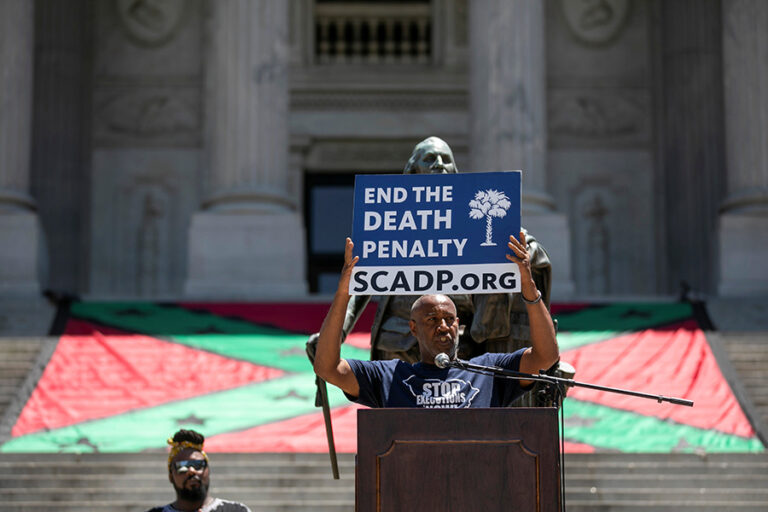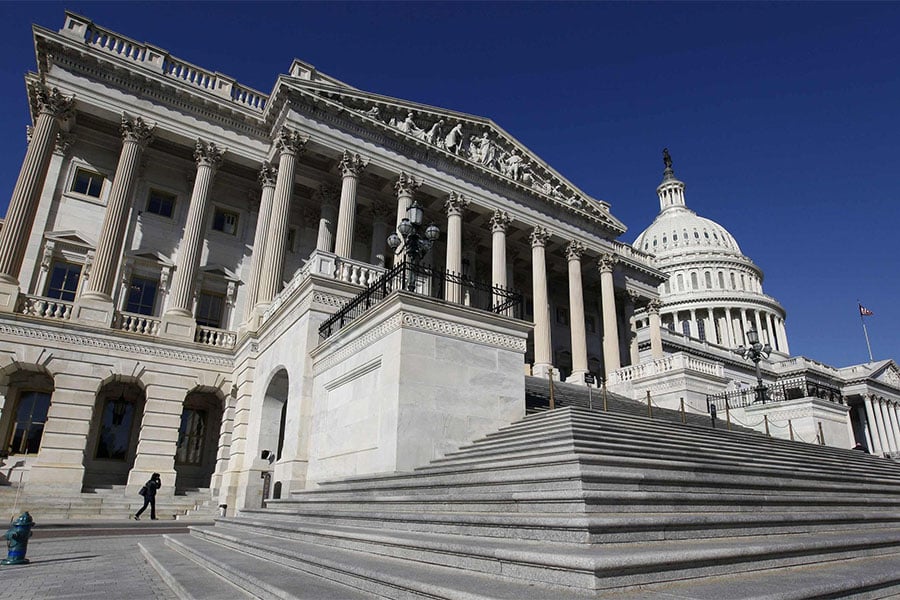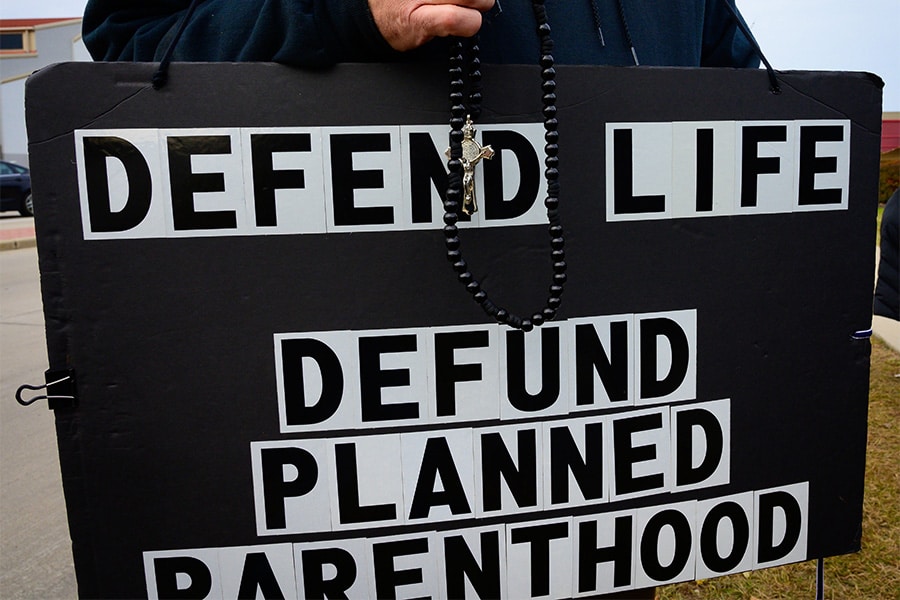WASHINGTON (OSV News) — After a report dubbed 2022 “the year of the botched execution,” Catholic activists renewed their calls for an end to capital punishment in the U.S. at both the state and federal levels.
Despite declining public support for the practice, and a campaign promise from President Joe Biden, a Catholic and a Democrat, to repeal the federal death penalty, a bill to do so gained little traction last Congress, when Democrats still controlled both chambers.
In his 2020 encyclical “Fratelli tutti,” Pope Francis cited Pope St. John Paul II, whom he said “stated clearly and firmly [in the encyclical “Evangelium vitae”] that the death penalty is inadequate from a moral standpoint and no longer necessary from that of penal justice.”
“There can be no stepping back from this position,” Pope Francis wrote. “Today we state clearly that ‘the death penalty is inadmissible’ and the Church is firmly committed to calling for its abolition worldwide.”

Pope Francis also revised the Catechism of the Catholic Church (CCC, No. 2267) to reflect that position in 2018.
In a Dec. 16 report, the Death Penalty Information Center, a Washington-based nonprofit that studies capital punishment, found that 7 out of 20 executions that took place last year, or 35 percent, were “visibly problematic” due to “executioner incompetence, failures to follow protocol, or defects in the protocols themselves.”
Robert Dunham, DPIC’s executive director, said in a statement accompanying the report that “After 40 years, the states have proven themselves unable to carry out lethal injections without the risk that it will be botched.
“The families of victims and prisoners, other execution witnesses, and corrections personnel should not be subjected to the trauma of an execution gone bad,” Dunham said.
Krisanne Vaillancourt Murphy, executive director of the Catholic Mobilizing Network, a group that opposes capital punishment, told OSV News “numerous botched and problematic executions” occurred last year.
“In Alabama and elsewhere, these botched executions have led to an evaluation of the ethicality and efficacy of state-sanctioned death. Such reviews are often hidden behind a veil of secrecy,” Vaillancourt Murphy said.
In November 2022, following the back-to-back failed executions of Alan Miller and Kenneth Smith, Alabama’s Republican Gov. Kay Ivey issued an order putting all executions in the state on hold while the state conducts “a “top-to-bottom” review of the state’s lethal injection protocol. But Ivey’s Nov. 22 statement made clear she has not changed her views on supporting the practice, casting the matter as a way “to ensure those guilty of perpetrating the most heinous crimes in our society receive their just punishment.”
But Vaillancourt Murphy noted that Alabama is a state that moved to restrict abortion after the U.S. Supreme Court issued its decision in Dobbs v. Jackson Women’s Health Organization in June 2022.
“As a state that sees itself as standing for life, reevaluating its insistence on the death penalty is an important step toward pro-life consistency,” she said.
Democratic Rep. Ayanna Pressley and Sen. Dick Durbin introduced in Congress a bill in 2021, the Federal Death Penalty Prohibition Act, with a pro-life Republican co-sponsor, Rep. Peter Meijer of Michigan. But the bill was not taken up by either the House or the Senate.
Republicans have historically supported capital punishment, but a growing number of Republican state lawmakers are supporting efforts to repeal the death penalty in their states. According to the group Conservatives Concerned About the Death Penalty, eight states had Republican-sponsored bills to repeal the death penalty introduced during their legislative sessions last year: Georgia, Kansas, Kentucky, Missouri, Ohio, Pennsylvania, Utah and Washington state.
That shift among state Republican lawmakers coincides with a shift in voters’ perspectives on the practice. A Nov. 14 Gallup survey found support for the death penalty was at 55 percent last year, a significant decline from 1994, when the survey recorded its all-time high of 80 percent.
Vaillancourt Murphy said that “ending the death penalty is no longer considered one-sided a Democratic or Republican issue.”
“For the past several years, leaders from both parties have been instrumental in advancing abolition efforts,” she said. “Lawmakers on both sides find it hard to ignore the moral and practical failings of the death penalty.”
Citing some of the states where Republican lawmakers have backed repeal efforts, Vaillancourt Murphy said, “Many lawmakers who profess pro-life values are recognizing that honoring the dignity of life must extend to those on death row.”
“We are called to uphold the sanctity of life for both the innocent and the guilty,” she said.
She also noted that some Republicans object to the practice as wasteful spending.
“The death penalty is far more expensive compared to alternative sentencing,” she said. “For many conservatives who tout the value of fiscal responsibility, capital punishment is simply irresponsible.”
The Biden administration in 2021 ordered a moratorium on carrying out federal death sentences, a policy that has paused, but not ended, the practice at the federal level.
Vaillancourt Murphy praised that order as “the first time a presidential administration ever declared such a moratorium” — but the pause leaves room for Biden’s eventual successor to potentially reverse the order. She noted that the previous administration restarted federal executions after a 17-year hiatus and proceeded to execute 13 people.
“Looking ahead, President Biden has an opportunity to take stronger, more decisive action against the federal death penalty — specifically by commuting the sentences of those on the federal death row,” Vaillancourt Murphy said. “Given how swiftly the last administration restarted federal executions, it is critical that these sentences be commuted — otherwise, we recognize that lives remain at risk.”
Kate Scanlon is a National Reporter for OSV News covering Washington.
Read More Respect Life
Copyright © 2023 OSV News








